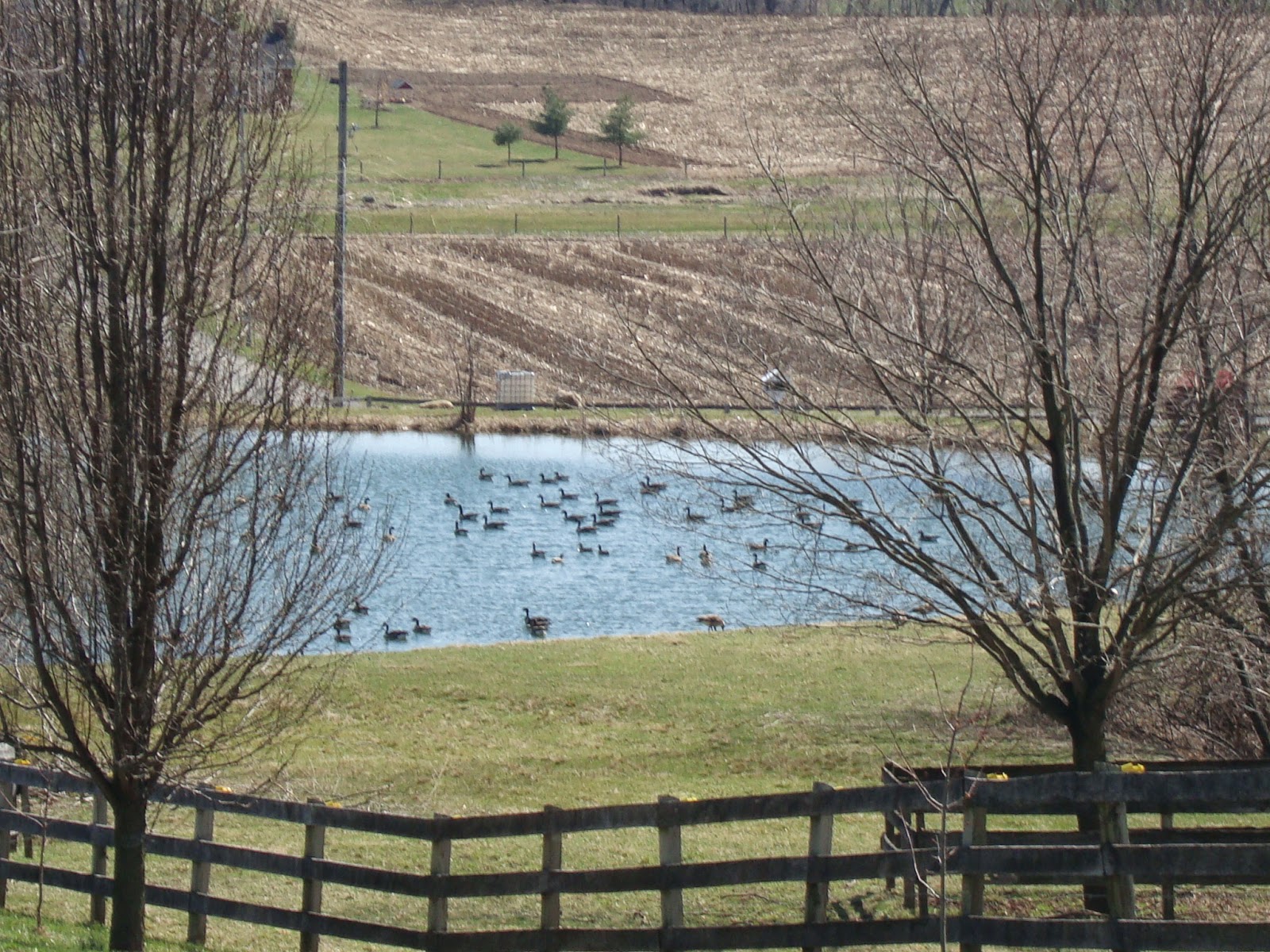 |
| We took the first walk in our woods yesterday! |
When the warm sun that brings
seed time and harvest, has returned again,
' tis sweet to visit the still wood,
where springs the first flower of the plain.
I love the season well,
when forest glades are teeming with bright forms,
nor dark and many-folded clouds foretell
the coming-on of storms.
From the earth's loosened mould
the sapling draws its sustenance, and thrives;
though stricken to the heart with winter's cold,
the drooping tree revives.
The softly-warbled song
comes from the pleasant woods, and colored wings
glance quick in the bright sun,
that moves along the forest openings.
When the bright sunset fills
the silver woods with light, the green slope throws
its shadows in the hollows of the hills,
and wide the upland glows.
And, when the eve is born,
in the blue lake the sky, o'er-reaching far,
is hollowed out, and the moon dips her horn,
and twinkles many a star.
Inverted in the tide,
stand the gray rocks, and trembling shadows throw,
and the fair trees look over, side by side,
and see themselves below.
 |
A beautiful green fern growing in a bank.
Spring is here, folks! |
Sweet April! -many a thought
is wedded unto thee, as hearts are wed;
nor shall they fail, till, to its autumn brought,
life's golden fruit is shed."
-An April Day by Henry Wadsworth Longfellow, from my poetry reading this morning.


















































